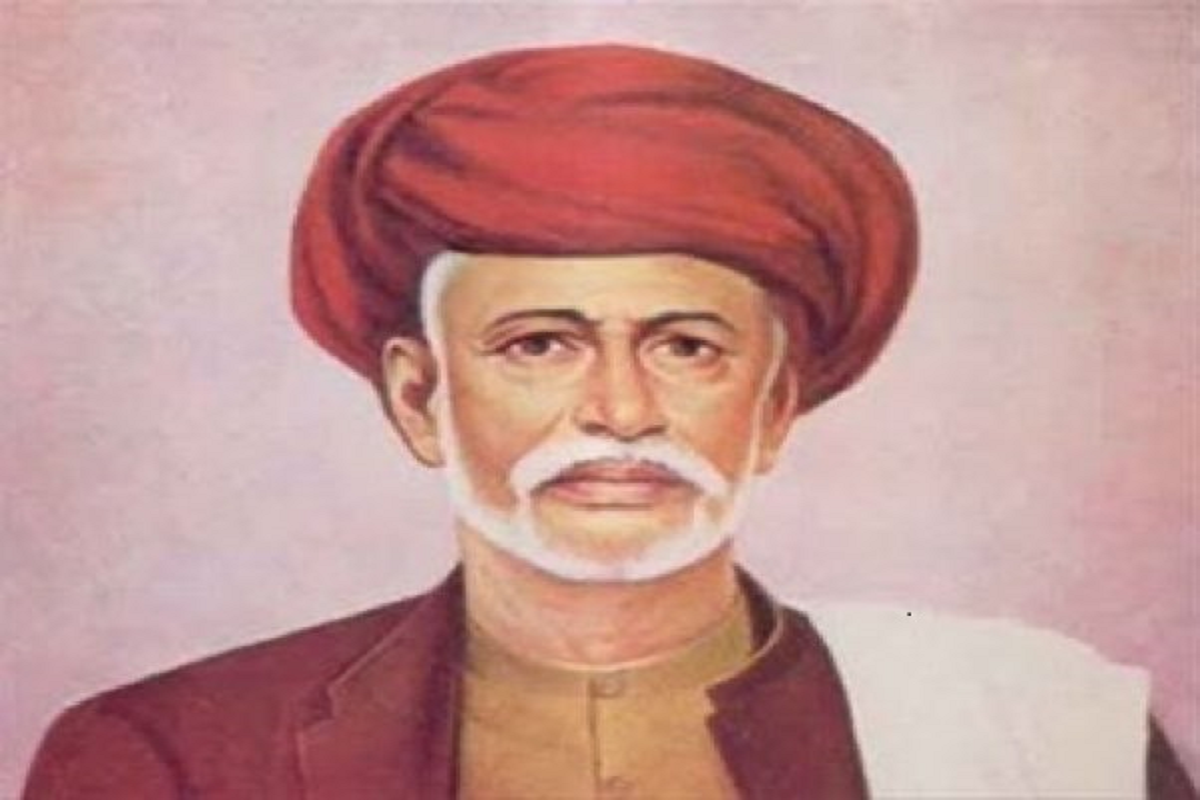Born in a family of fruits- and vegetable- growers in 1827, Jyotirao Phule is known as one of the greatest social reformers of 19th century India. On 11th May 1888, he was conferred with the title “Mahatma” by the people of the erstwhile Bombay and he was also given the term “Martin Luther King of India” by his biographer Dhananjay Keer.
Along with raising issues of caste and discrimination, Phule also revolted against the oppression of women, which is why he is also considered a contemporary male feminist along with J.S. Mill and F. Engels. He did not just fight for the rights of women but also opened the first girl’s school on the 15th May 1851 at the age of 24 as well as educated his wife Savitri Bai Phule (17 years of age at that time) who became the first women teacher of India.
The 19th century in India is a period of various social reforms, while there was an introduction of modern education with the teaching of the English language in Indian schools, Christian missionaries also opened in Maharashtra. During this phase, it was Jyotirao Phule who worked toward making the masses aware of the importance of education in becoming a vehicle for social change.
Jyotirao Phule and his western contemporaries
In comparison with his western contemporaries such as John Stuart Mill and Friedrich Engels, Jyotirao Phule’s thoughts on women’s liberation were similar on many levels. While the western counterpart wrote theories on Patriarchy and the difference between Man and woman, Phule believed in women resolving their oppression through their own will, efforts, and autonomy, this thought was in similarity to J.S Mill and F. Engels. Jyotirao Phule believed that women have an extremely crucial role in bringing about social change and that for their development of rational faculties education was significant. The difference in western theory on feminism and the Indian context lies in the existence of the Caste system in the Indian society, and so the gender-based discrimination in India exists on another level ie that of Caste-based discrimination.
Phule’s Philosophy in Contemporary India
India is entering the 75th year of Independence this year and Jyotirao Phule’s philosophy still holds ground even today. India has yet to eradicate untouchability from its roots, while girls in many parts of the country are yet to step a foot in schools. Jyotirao believed education is not to be limited to books but should go beyond it. For him, education involved a process of questioning, critiquing, interpreting, and understanding any information. According to Dr.BR Ambedkar “Mahatma Phule the greatest Shudra of modern India who made the lower classes of Hindus conscious of their slavery to the higher classes who preached the gospel that for India social democracy was more vital than independence from foreign rule.”
Some less known facts about Jyotirao Phule
- Jyotirao Phule joined a Scottish school in the year 1854 as a part-time teacher.
- First-ever infanticide prohibition home in India was started by Jyotirao Phule and his wife Savitri Bai Phule on 28th January 1853.
- The Phule couple started the first-ever orphanage in 1863, which also gave protection to pregnant widows.
- Major Candy felicitated Jyotirao Phule for his contribution to the field of education on 16th November 1852.
- Jyotirao Phule dedicated his book “Gulamgiri” to the African American movement to end slavery.











